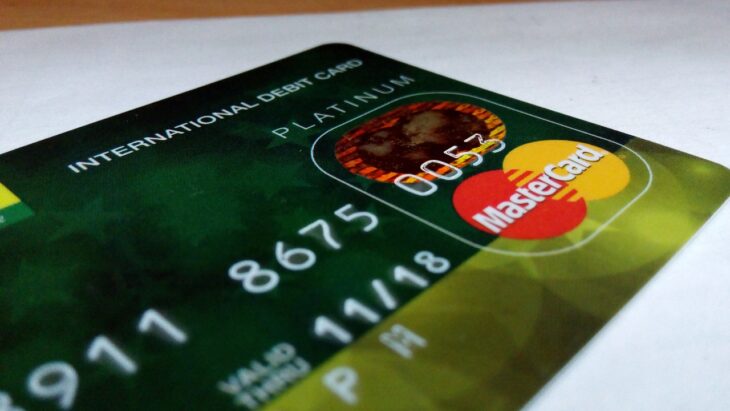Disclosure: Articles may contain affiliate links. As an Amazon Associate, we earn from qualifying purchases (at no additional cost to you). See our full disclosure here.
Last updated on October 25th, 2023 at 06:49 pm
In the vast world of finance, debit cards have carved out a significant niche, offering the convenience of plastic without the potential burden of debt.
However, just like any other financial tool, they come with their own set of advantages and disadvantages. Understanding these can help you decide when to use a debit card versus a credit card.
In this piece, we’ll dive into the pros and cons of debit cards to offer a comprehensive overview that should help guide your decision-making process.

Let’s start with the definition of a debit card. Basically, it’s a handy plastic card linked to your bank account.
When you use it to make purchases or withdraw cash, the money is deducted directly from your bank balance. It’s like a cash shortcut that allows you pay for things without having to carry any money.
When using a debit card, you can only spend the money you have. This is the most important difference between a debit and a credit card.
Benefits of Using a Debit Card
Now, we’ll discuss a few advantages that come with using a debit card:
Cash Back Rewards
Many debit cards come with cash-back rewards programs that allow you to earn a percentage of your spending as cash back. This feature is especially beneficial for those who make frequent purchases on their debit card.
The cash back earned can be used for future purchases, saved, or withdrawn, depending on the card’s policy. This reward system is a terrific perk for those who mostly use debit cards, since it allows them to maximize their benefits without racking up debt as they would with a rewards credit card.
It’s important, however, to ensure you’re familiar with the terms and conditions of these rewards, as they might come with specific requirements or limitations.
No Debt Accumulation
As we mentioned, one of the major benefits of using a debit card is that you get the convenience of a credit card without accumulating debt.
Since debit cards pull funds directly from your bank account, you can only spend what you have. This feature ensures that you live within your means and stay clear of the potential pitfalls of credit card debt, like high-interest rates and long-term financial commitments.
Debit cards can be an excellent tool for managing your finances, promoting responsible spending, and preventing you from getting in over your head.
No Interest Charges
Another advantage of using a debit card is the absence of interest charges. With credit cards, any balance not paid off by the end of the billing cycle incurs interest, which can add up over time and lead to significant debt.
Debit cards, however, draw funds directly from your bank account, so you’re not borrowing money. You also won’t be charged any interest on your purchases, which can result in substantial savings in the long run versus carrying a credit card balance.
This benefit makes the debit card an economically sound choice for many people, particularly those who are wary of accruing debt.
Increased Security
Debit cards also offer increased security measures that protect cardholders from fraudulent activities. Most banks and credit unions have protocols to monitor unusual activity, and they will often freeze an account if they suspect fraudulent transactions.
And, with the advent of chip technology, transactions are now more secure since each transaction is encrypted, making the card incredibly difficult to duplicate.
Many institutions also provide zero liability policies, ensuring that cardholders aren’t held responsible for unauthorized charges made with their cards. That said, users must report any unauthorized transactions promptly to receive this protection.
All of these security measures can provide peace of mind, making debit cards a safe and reliable choice.

Drawbacks of Using a Debit Card
While debit cards offer numerous benefits, there are also some potential drawbacks that you should be aware of before making them your go-to payment method:
Limited Protection
Unlike credit cards with specific consumer protection laws and policies, debit card users may face limited protection in case of fraud or unauthorized use.
In the event of a fraudulent transaction, you could be liable for any losses up to a certain dollar amount, depending on your bank’s policies and the type of debit card you have. If your debit card information is compromised or stolen, you may, unfortunately, be faced with shouldering some of the financial responsibility.
No Credit Building
When talking about the pros and cons of debit cards, we have to mention credit scores. That’s because, unlike using a credit card, using a debit card does not help build your credit history.
Since debit cards only pull funds from your bank account, they do not impact your credit score in any way. This can be a disadvantage to those looking to establish or improve their credit rating.
If you have no credit history or are trying to rebuild your credit, using a debit card will not help you improve your credit score.
Foreign Transaction Fees
If you’re an avid traveler or make purchases from international merchants, you may encounter foreign transaction fees when using a debit card. These fees can add up quickly, leading to additional, unexpected costs.
Some merchants may even refuse to accept debit cards as payment, making it challenging to use them in certain situations. (Also read: 6 Important Benefits to Look for When Choosing a Credit Card for Travel)
Wrapping Up
Debit cards offer definite benefits for managing finances, including convenience and security for everyday transactions. But, it’s essential to consider the drawbacks before deciding “debit only” is the way to go.
Assess the pros and cons, your spending habits, goals, and needs. Of course, you should use any financial tool responsibly, track your transactions, and look out for potential potential challenges as you manage your expenses.
What other pros and cons of debit cards would you add to our list? Leave us a comment.
Also read:
Get Your Truly FREE Credit Report and Credit Score Online
How to Build a Good Credit Score: 7 Smart Tips
The Art of Mindful Spending: Cultivating Financial Wellness and Home Happiness
You can also find MomsWhoSave on Pinterest, Facebook, Instagram, and Twitter. Join us for updates.
Leave a Reply